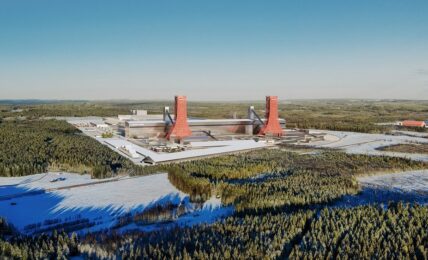A new survey from professional services firm KPMG and law firm Eversheds Sutherland indicated that many corporate executives expect their companies’ decarbonization strategies to have a negative impact on their employees, with almost half expecting a high level of resistance from the workforce.
In a new report, Climate Change & the People Factor, the firms explore the human capital aspect of company climate strategies, and how employees factor into corporate decarbonization plans. For the report, KPMG and Eversheds Sutherland surveyed C-suite leaders from 1,095 of the world’s leading companies, across multiple markets and industry sectors.
The survey examined the aspects of human capital in climate actions from several angles, including key issues for board directors and senior management, the potential impact of climate plans on employees, and employee engagement as a key to delivering on corporate climate objectives, and also included sector specific findings.
One of the key findings of the report is the anticipated impact of company decarbonization plans on the workforce. Less than a quarter of respondents said that they expect their companies’ decarbonization journeys to have either a positive impact or no material negative impact on the people in their organizations. While 34% reported that some adverse impact can be met with employee retraining and reskilling, 30% expect some positions to become redundant in a low-carbon organization, resulting in job losses.
Sophie Heading, Global Geopolitics Lead, KPMG International, said:
“The conversation around climate change often focuses on having the right policies, the right investment, the right technologies. These are critical, of course, but what about the human element? After all, it is the people within organizations that are expected to play a decisive role in the ability to meet ambitious global targets.”
The report also indicated that most executives do not expect a major shortage in skills necessary to carry out their decarbonization plans. 74% reported that their companies have the knowledge, skills and resources to deliver on their plans, and nearly all expect the skills to be in place within the next 3 years. This contrasts with last year’s report, “Climate change and corporate value,” in which nearly half said that not having the right skills in the business was the most challenging barrier to decarbonization.
Mike Hayes, Global Head of Renewables for KPMG International and Global Head of Climate Change & Decarbonization for KPMG IMPACT said:
“Corporates have made significant progress in recognizing what needs to be done to address the challenges, compared to the initial report ‘Climate change and corporate value.’ What is clear though, is that more could be done at an individual and team level to assist with the drive towards decarbonization, and there is an opportunity for cooperation among businesses, training providers and governments to really advance this development and help ensure global businesses confront climate risk head-on.”
Despite the anticipated challenges, most companies have not worked their climate goals into workforce compensation plans. While 82% of respondents reported having incentives in place for board directors related to decarbonization targets, less than a third have established KPIs for employees related to these goals.
Diane Gilhooley, Global Co-Head of ESGEnvironmental, social, and governance (ESG) criteria are a set of standards for a company’s operations that socially conscious investors use to screen potential investments. More at Eversheds Sutherland said:
“Business leaders have made significant progress in addressing climate risk within their organizations but recognize upskilling challenges and the people impact of climate transition. However, they also see the opportunities to further engage employees around this important topic and that doing so can help to accelerate the transition. Incentivizing employees to achieve implementation of solutions within their companies will help with that engagement. An organization that can harness both the skills and energy within the workforce to engage in the challenges presented by climate risk will see a significant boost in their progress towards decarbonization.”
Other key findings of the survey include:
State of decarbonization plans. While only 49% of respondents said that they currently have a clear decarbonization plan in place, all others said that plans were already under consideration.Board skills. 47% of boards have appointed a climate change expert, while all others have either tasked an existing board member with responsibility for climate risk, or plan to include climate experts in the future.Sectors. The infrastructure and transport leads on board expertise and decarbonization planning, with 58% reporting having appointed a climate change expert to their board, and 56% having a clear decarbonization plan in place. Financial services organizations scored the lowest on both of these areas, at 19% and 41%, respectively.
Herbert J. Short, Global Co-Head of ESGEnvironmental, social, and governance (ESG) criteria are a set of standards for a company’s operations that socially conscious investors use to screen potential investments. More at Eversheds Sutherland, said:
“The reality of transitioning to a global, low-carbon economy is becoming very real across the world. This is a once-in-a-lifetime transition for many businesses, with different implications for employees and their broader communities. However, corporations are not the only solution. Governments need to play an integral role in helping to ensure a retraining and upskilling of the workforce. There is a lot of focus right now on the physical decarbonization approach, so the people factor could easily be overlooked if governments don’t pay attention.”
Click here to access Climate Change & the People Factor.
The post C-Suite Survey: Climate Plans to Result in Job Losses, Employee Resistance appeared first on ESG Today.


